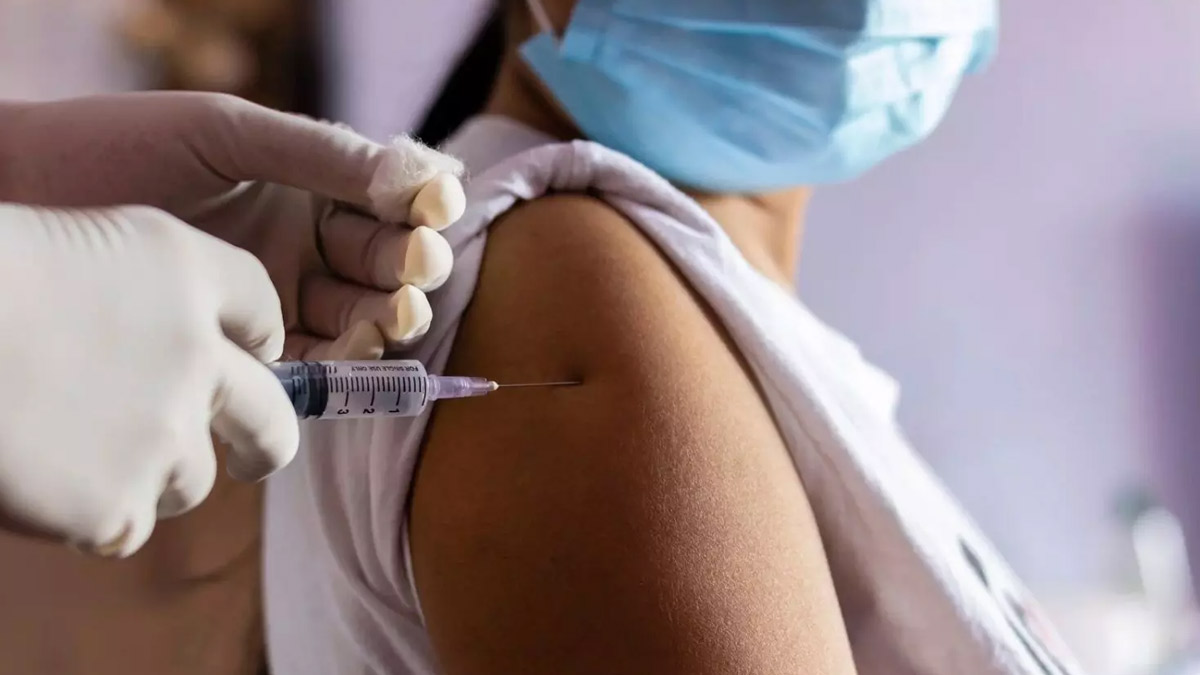
In a significant step towards the elimination of tuberculosis (TB) in India, the Delhi Health Department has administered the Bacillus Calmette-Guérin (BCG) vaccine to more than 50,000 adults as part of a large-scale study. This trial, known as the Adult BCG Vaccination Study, aims to explore the vaccine’s potential in reducing TB cases and related fatalities among high-risk populations. This initiative aligns with India’s National Tuberculosis Elimination Program (NTEP), an ambitious endeavour to eradicate TB by 2025.
Table of Content:-
The Focus of the Adult BCG Vaccination Study
The Adult BCG Vaccination Study is a crucial component of the NTEP and represents a collaboration between the Ministry of Health and Family Welfare, the Indian Council of Medical Research (ICMR), and the Department of Health Research (DHR). Traditionally, the BCG vaccine is administered to infants to protect them from TB. However, the current study is investigating its efficacy in adults, a demographic that has not been the primary focus of BCG vaccination until now.
The study is being conducted in five high-risk districts across Delhi — New Delhi, North-East, West, East, and South — with six additional districts serving as control groups. The goal of the trial is to assess whether vaccinating adults can contribute to reducing the number of TB cases in the city, particularly in areas with high rates of TB transmission.

The Trial's Target Population and Methodology
The study focuses on adults aged 18 and above who fall into specific high-risk categories. These include individuals who have had direct contact with TB patients in the last three years, those who have been treated for TB in the past five years, people with low Body Mass Index (BMI), individuals aged 60 and above, smokers, and diabetics. These groups are known to have a higher susceptibility to contracting TB due to compromised immune systems or direct exposure to the bacteria that cause TB.
So far, more than 50,000 adults in these high-risk groups have received the BCG vaccine. Over the course of the trial, which will span three years, these participants will be monitored at regular intervals to assess the vaccine's effectiveness. Fourteen assessments are scheduled throughout this period, allowing researchers to track any reduction in TB incidence and the vaccine’s overall protective efficacy in adults.
Why Vaccinate Adults? Exploring BCG’s Potential Beyond Infancy
The BCG vaccine has long been a staple in the fight against TB in infants, but its effectiveness in adults remains under examination. Although past research, such as the Chingleput BCG trial, showed a modest efficacy rate of around 36% over 15 years, there is still hope that adult vaccination could offer valuable protection, particularly in high-risk populations.
According to the World Health Organization (WHO), even a TB vaccine with just 50% efficacy could substantially impact global TB incidence and mortality rates. It’s estimated that such a vaccine could reduce TB incidence by 12% and mortality by 8.5% by 2030. The Adult BCG Vaccination Study in Delhi aims to provide critical data on whether adult vaccination could contribute to these global goals and help control TB more effectively in India, a country that carries one of the highest TB burdens worldwide.
Delhi’s TB Challenge: The Need to Protect High-Risk Groups
TB remains one of India’s most pressing public health challenges, with millions of new cases each year. In Delhi, the disease has a disproportionately high impact on certain vulnerable groups, necessitating targeted interventions like the BCG trial.
Among the groups identified as being at higher risk are individuals who have had direct contact with TB patients. Close contact with someone who has active TB significantly increases one’s chances of contracting the disease. Additionally, people with weakened immune systems, such as smokers and diabetics, are more vulnerable to TB. Low BMI is also a recognized risk factor, as malnutrition can impair the immune response, making it harder for the body to fight off infections like TB.
By focusing the vaccination effort on these high-risk populations, the Delhi government aims to reduce both the spread of TB and the mortality associated with it. The trial also aims to gather valuable insights that could inform future prevention strategies, particularly for adult vaccination.
Also Read: Cholera Deaths Surge 71% Globally, Reports WHO
The Bigger Picture: India’s Fight Against Tuberculosis
India has set an ambitious goal of eliminating TB by 2025, which is five years ahead of the global target set by the United Nations Sustainable Development Goals (SDGs). The success of initiatives like the Adult BCG Vaccination Study could play a pivotal role in achieving this goal. While TB has been a leading cause of morbidity and mortality in the country for decades, innovations in vaccine research and targeted public health interventions offer new hope.
The Delhi trial represents just one part of a larger national effort to combat TB. Alongside this study, India has ramped up its efforts to provide free TB treatment, improve diagnostic capabilities, and ensure that those at risk receive timely interventions. If the Adult BCG Vaccination Study yields positive results, it could be a game-changer, not just for Delhi but for the entire country’s TB elimination strategy.
Bottomline
The Adult BCG Vaccination Study, which has successfully vaccinated over 50,000 adults in Delhi, is a significant milestone in India’s fight against tuberculosis. By focusing on high-risk groups and leveraging the potential of adult BCG vaccination, the Delhi government is taking proactive steps toward reducing TB cases and deaths. As the trial progresses, the insights gained could shape future public health strategies and contribute to India’s goal of eliminating TB by 2025.
Also watch this video
How we keep this article up to date:
We work with experts and keep a close eye on the latest in health and wellness. Whenever there is a new research or helpful information, we update our articles with accurate and useful advice.
Current Version